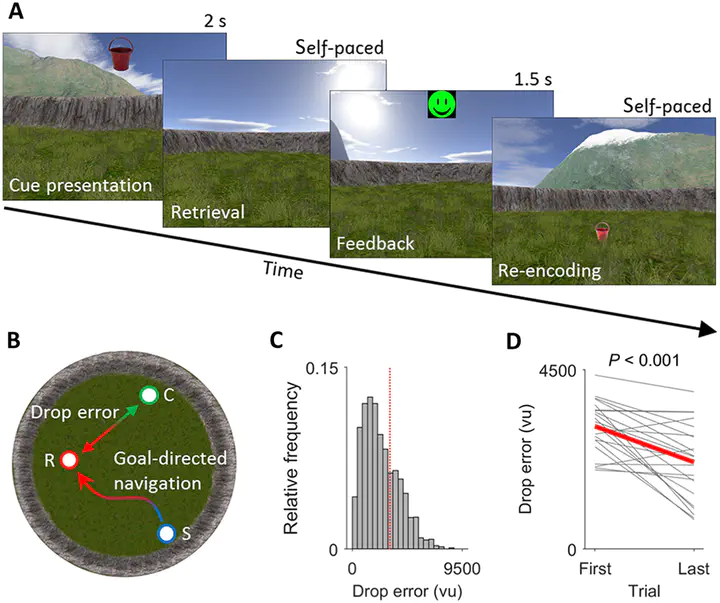Hippocampal theta phases organize the reactivation of large-scale electrophysiological representations during goal-directed navigation

Abstract
Humans are adept in simultaneously following multiple goals, but the neural mechanisms for maintaining specific goals and distinguishing them from other goals are incompletely understood. For short time scales, working memory studies suggest that multiple mental contents are maintained by theta-coupled reactivation, but evidence for similar mechanisms during complex behaviors such as goal-directed navigation is scarce. We examined intracranial electroencephalography recordings of epilepsy patients performing an object-location memory task in a virtual environment. We report that large-scale electrophysiological representations of objects that cue for specific goal locations are dynamically reactivated during goal-directed navigation. Reactivation of different cue representations occurred at stimulus-specific hippocampal theta phases. Locking to more distinct theta phases predicted better memory performance, identifying hippocampal theta phase coding as a mechanism for separating competing goals. Our findings suggest shared neural mechanisms between working memory and goal-directed navigation and provide new insights into the functions of the hippocampal theta rhythm.